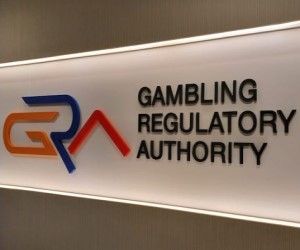Last Updated on 8 January 2026 by Nicholas Lim
 Singapore has reinforced its position as a leader in regulatory precision with sweeping reforms targeting gambling and cryptocurrency. In light of global concerns such as money laundering and consumer risks, the government has enacted stricter laws under the Casino Control Act and imposed tighter restrictions on cryptocurrency-related activities. These measures aim to promote transparency, safeguard citizens, and maintain Singapore’s reputation as a global financial hub.
Singapore has reinforced its position as a leader in regulatory precision with sweeping reforms targeting gambling and cryptocurrency. In light of global concerns such as money laundering and consumer risks, the government has enacted stricter laws under the Casino Control Act and imposed tighter restrictions on cryptocurrency-related activities. These measures aim to promote transparency, safeguard citizens, and maintain Singapore’s reputation as a global financial hub.
The Casino Control Act: A Shift Towards Cashless Gambling
As part of its regulatory updates, Singapore introduced cashless gambling in casinos while prohibiting the use of cryptocurrencies. This move aligns with global efforts to modernize betting systems and minimize risks associated with cash handling. Cashless systems, powered by digital wallets and other electronic payment methods, are expected to enhance traceability and accountability in the gambling sector
Cryptocurrencies Excluded from Casinos
Despite embracing cashless technologies, Singapore has explicitly banned the use of cryptocurrencies in gambling activities. Minister Sun Xueling cited the anonymity of cryptocurrencies as a key risk, potentially facilitating money laundering. This cautious approach is consistent with other nations like Australia and Brazil, which have implemented similar prohibitions
Money Laundering Fears: A Driving Force Behind Regulation
Singapore’s Commitment to Financial Integrity
Singapore’s stringent stance on cryptocurrency usage in gambling stems from its broader efforts to combat financial crimes. A recent case underscored these concerns, with the seizure of assets worth over SGD 1 billion, including cryptocurrency holdings. This high-profile money-laundering investigation involved foreign nationals leveraging digital currencies to obscure illicit funds
Global Trends in Anti-Money Laundering
The Monetary Authority of Singapore (MAS) has highlighted the risks posed by cryptocurrencies in facilitating financial crimes. In 2024 alone, the global crypto-gambling market surged to $70 billion, intensifying fears of its misuse for unlawful purposes. By banning cryptocurrencies in casinos, Singapore aims to align with international efforts to curb these practices
Regulating Cryptocurrency Use: Striking a Balance
MAS has introduced stricter guidelines for retail cryptocurrency investors, focusing on consumer protection. These include banning crypto firms from offering credit or leverage options and requiring enhanced risk disclosures. This phased implementation is designed to shield retail investors from the speculative volatility of digital assets
Singapore’s Financial Services and Markets Bill mandates licensing for virtual asset service providers (VASPs) conducting overseas operations. This regulation aims to close loopholes exploited by unregulated entities and ensures compliance with anti-money laundering standards
Casino Operators Adjust to New Realities
Casino operators in Singapore are now required to adopt stricter measures, including enhanced customer due diligence and robust reporting frameworks. The Gambling Regulatory Authority (GRA) has been granted greater oversight to enforce these requirements effectively
The exclusion of cryptocurrencies and the shift to cashless systems have prompted casinos to reevaluate their business models. While these changes may initially pose challenges, they are expected to foster long-term stability and trust in the industry
Singapore as a Leader in Cryptocurrency Adoption and Regulation
Despite its cautious regulatory approach, Singapore remains a global leader in cryptocurrency adoption. It scored the highest in the Henley Crypto Adoption Index, thanks to its robust digital infrastructure, clear policies, and innovation-friendly environment
Projects like Project Orchid and Project Guardian demonstrate Singapore’s commitment to leveraging blockchain technology while maintaining stringent oversight. These initiatives enable the integration of digital assets into mainstream financial systems, showcasing a nuanced approach to cryptocurrency management
International Comparisons: Lessons from Other Nations
Countries like: Australia and Brazil have implemented bans on cryptocurrencies in gambling, citing similar concerns about money laundering and financial transparency. These measures reflect a global consensus on the need for tighter control over digital assets in high-risk industries
In contrast, regions like the UAE and Hong Kong are embracing cryptocurrency with tailored regulatory frameworks. For example, Dubai recently allowed cryptocurrency-based salary payments, highlighting a more progressive stance compared to Singapore’s cautious approach
Public Reaction and Industry Response
Singapore’s regulatory updates have received mixed reactions. Advocates argue that these measures are necessary to protect consumers and uphold the nation’s financial integrity. The prohibition of speculative crypto activities has been particularly praised for mitigating risks to retail investors
Conversely, critics warn that excessive restrictions could stifle innovation and deter foreign investment. The casino and cryptocurrency sectors, both vital to Singapore’s economy, must navigate these challenges to ensure sustainable growth
The Road Ahead: Navigating a Dynamic Landscape
Singapore’s policies on gambling and cryptocurrency are expected to evolve as the government monitors their impact. Continuous dialogue with stakeholders will be crucial to balancing consumer protection with economic innovation
As a global financial hub, Singapore has the opportunity to lead collaborative efforts in developing international standards for cryptocurrency and gambling regulations. These partnerships could enhance global financial security and foster responsible innovation
Conclusion
Singapore’s comprehensive approach to regulating gambling and cryptocurrency underscores its commitment to safeguarding its financial ecosystem. By prioritizing transparency, consumer protection, and international collaboration, the nation continues to set a benchmark for regulatory excellence. While challenges remain, these measures are crucial for ensuring a stable and secure future for both industries.
